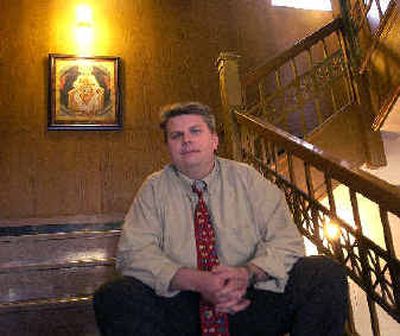Churches mobilizing to help disaster victims

When Rob McCann saw the devastation unfold on the television screen, his thoughts immediately turned to the victims – to the tens of thousands killed by the tsunamis, to the hundreds of thousands who are now even more vulnerable to hunger and disease.
McCann, the associate director of Catholic Charities in Spokane, spent five years assisting relief efforts throughout the world, including some of the countries ravaged by the waves.
Even before the disaster, the residents lived in dire conditions, McCann said.
“These are countries in tremendous poverty, people who are living in unthinkable situations,” he said.
To help with the relief effort in South Asia, Catholic Charities of Spokane is accepting donations on behalf of Catholic Relief Services, the official international relief and development agency of the Catholic community in the United States.
Churches and temples in the Inland Northwest also are coming together in prayer and to send financial support.
Bishop Jim Waggoner of the Episcopal Diocese of Spokane has asked clergy to provide the means for special offerings from congregations. Funds from that collection will go to Episcopal Relief and Development, an organization that responds to human suffering around the world.
On Friday, the 35 families who belong to the Sikh Temple of Spokane will gather from 10 p.m. until midnight to pray for the victims. The temple is also collecting clothing and donations to send.
“We will do whatever we can from here,” said Gurjeet Singh Aujla, also known as Baba Jee, the temple’s spiritual master.
Images of ravaged villages and towns immediately sent McCann’s mind back to his work with Catholic Relief Services, the organization he served until he relocated to Spokane in 2000. There is very little infrastructure in countries such as Indonesia and India, McCann said. Many of these villages have no paved roads, no electricity, no running water and no sewer systems, he said. People are not only deprived of education; they also lack health care and adequate nutrition, he said.
In such conditions, the No. 1 killer of children is not war or tidal waves, he said; it’s diarrhea. Aid workers have the enormous task of getting clean water in and taking human waste out of temporary shelters for hundreds of thousands of displaced people, while making long-term plans that include rebuilding schools and homes. It may take decades before these countries can recover from their losses, McCann said.